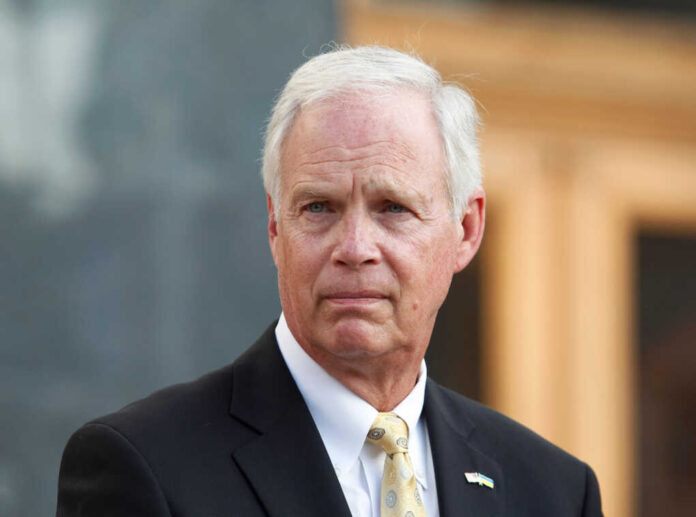
Senator Ron Johnson is warning that President Trump’s new tax plan could push the U.S. trillions deeper into debt, creating a fiscal crisis that divides Republicans and tests conservative credibility.
At a Glance
- Senator Ron Johnson calls Trump’s new tax bill “completely unsustainable” due to its $3.8 trillion projected cost.
- The proposal extends 2017 tax cuts, boosts defense and border funding, and slashes Medicaid and SNAP spending.
- Senators Rand Paul, Rick Scott, and Mike Lee demand deeper cuts and a return to pre-COVID spending levels.
- Moderate Republicans are uneasy about Medicaid reductions and renewable energy rollbacks.
- Senate GOP leaders face an uphill battle to unify the party and pass the bill.
Fiscal Conservatives Push Back
Senator Ron Johnson didn’t mince words. Calling the proposal “completely unsustainable,” he urged fellow Republicans to reconsider the fiscal damage of Trump’s tax revival plan, now rebranded as the One Big Beautiful Bill Act, as reported by NPR. Johnson proposes splitting the legislation into separate components to allow scrutiny of each piece, especially given its sweeping $3.8 trillion price tag over the next decade.
He’s not alone. Senators Rand Paul, Rick Scott, and Mike Lee have joined Johnson in demanding steeper cuts to federal spending and a rollback to pre-pandemic budget levels. Their primary concern: generational debt that would saddle future Americans with economic stagnation.
Watch a report: GOP Senators Oppose Trump’s Tax Plan.
Internal GOP Divisions
The bill has fractured the GOP. Trump loyalists back the plan for restoring signature tax cuts and expanding security spending, but moderate Republicans are wavering. Senators Susan Collins and Lisa Murkowski voiced discomfort with provisions slashing Medicaid and removing incentives for renewable energy adoption, according to The Washington Post.
Majority Leader John Thune now faces a legislative minefield. With only a narrow Republican majority in the Senate, dissent from even a handful of GOP lawmakers could sink the bill. Thune has been holding closed-door meetings to rework language around healthcare and entitlement cuts, hoping to stave off a party-line rebellion.
Economic Implications and Public Response
The Congressional Budget Office warns the tax package would balloon the national deficit by nearly $3.8 trillion over ten years, as detailed by NPR. Critics argue the bill disproportionately benefits high earners while slashing essential services for lower-income Americans.
Business leaders are speaking out. JPMorgan Chase CEO Jamie Dimon cautioned against deficit-fueled growth strategies, while Elon Musk posted concerns about the bill’s potential impact on innovation and long-term investment.
Public sentiment is similarly mixed. While some conservatives praise Trump for focusing on tax relief and national defense, others warn this bill sacrifices financial stability at the altar of political optics, according to AP News.
As debate looms, Republicans face a test of ideological clarity: whether to side with tax cuts and Trump—or fiscal reality.





























